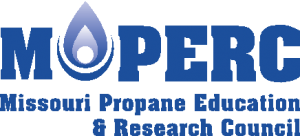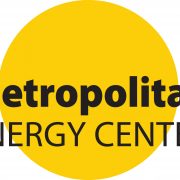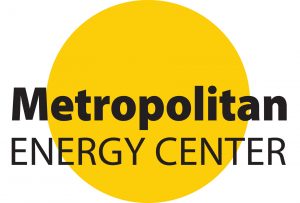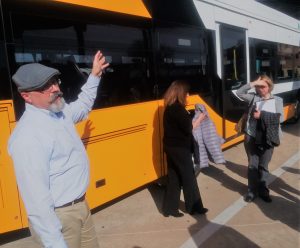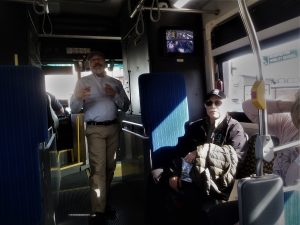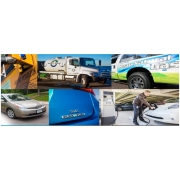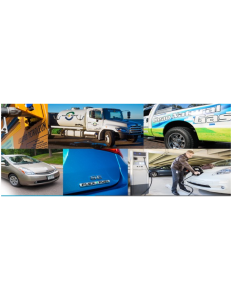Carnage in the conventional energy sector has drawn a lot of attention in the past few weeks. But the collapse of recent months was presaged by mediocre performance stretching back literally years. Total returns for the Standard & Poor Energy Sector for 2019, including dividends, were a paltry 6%. And for the entire decade of 2010-2019, the same sector was up 34%, by far the worst performance of the 11 sectors S&P tracks. The fracking revolution, it turns out, created a world awash in oil and gas, but didn’t do much to help the industry that created it.
Which brings us to a related question – if oil & gas are in trouble from COVID-19 and from a decade of overproduction and low prices, what has the ongoing turmoil done to alternative fuels? In particular, since KC Clean Cities operates in the biofueled, beating heart of the Midwest, what’s happened to biodiesel and (particularly) ethanol?
A bit of backstory: more than 95% of vehicle gasoline sold in the US is a 10% ethanol blend. There are several reasons for this. Until about 15 years ago, a compound known as MTBE (methyl tertiary-butyl ether) was blended with gasoline to add oxygen. As a result, gasoline burned cleaner, and cut smog-forming chemicals and toxins like benzene in exhaust. But there were problems – MTBE leaked into groundwater from gas station tanks, creating water quality problems. Moreover, it’s listed as a potential carcinogen. Enter ethanol, exit MTBE with the Energy Policy Act of 2005.
Like MTBE, ethanol adds oxygen to gasoline and cuts smog-forming emissions. Unlike MTBE, it’s also a way for America to deal with its massive agricultural surpluses by distilling a value-added product from corn. (It’s worth noting that ethanol now accounts for 40% of all the corn we grow.)
With the Energy Independence & Security Act of 2007, Congress created a mandate that steadily increasing amounts of renewables would be blended into America’s fuel supply – 36 billion gallons by 2022. This is the Renewable Fuels Standard, which has been hotly debated over the last few years in Washington and elsewhere.
So far so good. Refineries and fuel importers had a choice – they could blend steadily increasing amounts of renewable fuels. Or, if they didn’t want to, they could use RINs – Renewable Inventory Numbers – attached to each gallon of renewable fuel produced. Pecos Pete’s refinery has already hit their required volume of ethanol blended with gasoline for the year, but they keep on blending. Why? Because Brownsville Bob’s refinery hasn’t blended any ethanol into their gasoline. However, Bob can stay in compliance by buying RINs from Pecos Pete, with the price set by the RIN market.
There’s also been a safety valve built into the system, called the Small Refinery Exemption or SRE. “Small” is relative, but refineries with less than 75,000 barrels per day as of 2006 qualify, and can petition EPA to be excused from renewable fuel blending. And this is where the fur begins to fly. Between 2016 and 2018, the EPA granted a total of 85 small refinery exemptions, a big jump that removed a total of 4 billion gallons of mandated demand from the market. This has been a sore spot with farmers, but hardly the only one. The ongoing trade war with China has dried up what was a major market for ethanol, corn and distiller’s grain, a byproduct of the ethanol production process used as animal feed. Allowing year-round sales of E-15 – that is, gasoline that is 15% ethanol by volume hasn’t made much of a dent, since relatively few gas stations sell it even though all light-duty gasoline vehicles 2001 or newer are approved to use E15.
And now, COVID. Just as Texas and Oklahoma oil producers and refineries don’t have any place left to store their crude and refined products as consumer demand collapses, ethanol producers are running out of storage. Federal Reserve research shows US ethanol production down nearly 50% since the beginning of 2020. 73 out of 200 total plants nationwide are shut down, while another 71 are on reduced production schedules. At least two dozen ethanol plants are now producing alcohol for hand sanitizer, but at low volume, much of which will be donated anyway.
For the time being, the sector seems to be shaking its way into stasis. Whatever shape the ethanol industry takes in 2021 and beyond will depend for now on what the virus does– and how we respond – in 2020.
For additional details on why this matters, please check out our guest blog posting by David VanderGriend of the Urban Air Institute. Fuel blending standards can sound arcane, and the details of ethanol and corn and agriculture seem like something taking place in distant, rural counties. They’re not. They impact the lives of residents of metro Kansas City every day, and at the fundamental level of our own health.

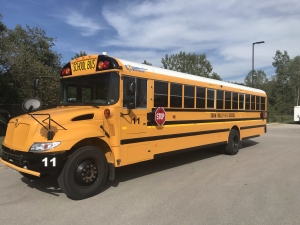 ban and exurban neighborhoods.
ban and exurban neighborhoods.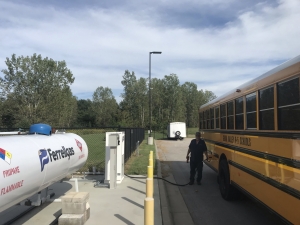 negotiated contract, Grain Valley paid a locked-in rate of $1.20 per gallon of propane in 2018-1019. For the 2019-2020 school year, the district pays $1.15 per gallon. For comparison, the district pays $2.31 per gallon on average for diesel.
negotiated contract, Grain Valley paid a locked-in rate of $1.20 per gallon of propane in 2018-1019. For the 2019-2020 school year, the district pays $1.15 per gallon. For comparison, the district pays $2.31 per gallon on average for diesel.